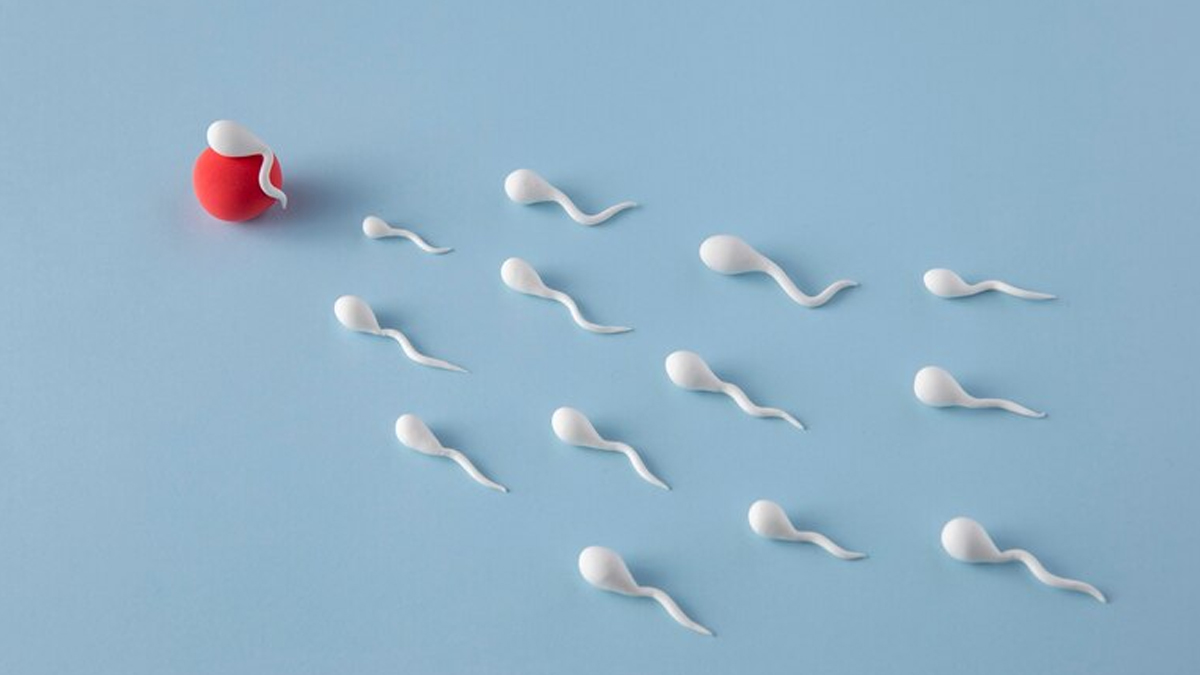
When we talk about the biological clock, the focus often leans towards women and their fertility timelines. However, recent research and evolving societal norms highlight that men, too, need to be aware of their biological clock. Understanding the implications of age on male fertility and overall health can lead to better family planning and healthier outcomes for both parents and children.
Table of Content:-
To understand why it is important for men to look after their biological clock, OnlyMyHealth interacted with Dr Bhavna Banga, clinical director, reproductive medicine and IVF, Cloudnine Group of Hospitals, Delhi NCR.
Decline in Sperm Quality
Explaining Dr Banga said, “As men age, the quality of their sperm can decline. Studies have shown that men over the age of 40 may experience a decrease in sperm motility (movement), morphology (shape), and overall count.” This decline can result in a reduced likelihood of successful conception. Moreover, older sperm is more prone to DNA fragmentation, which can increase the risk of genetic abnormalities.

Increased Risk of Genetic Disorders
Children born to older fathers are at a higher risk of genetic disorders. Research has linked advanced paternal age with conditions such as autism, schizophrenia, and certain congenital anomalies. This is due to the accumulation of mutations in the sperm DNA over time. While the overall risk remains relatively low, it increases significantly with paternal age, making it a crucial factor in family planning.
Also read: Dietician Recommended Steps To Fix Your Biological Clock
Fertility Issues and Assisted Reproduction
According to Dr Banga, older men may face challenges with fertility, requiring interventions such as IVF (in vitro fertilization) or ICSI (intracytoplasmic sperm injection). “These procedures can be physically, emotionally, and financially taxing. By being mindful of their biological clock, men can plan for parenthood at a time when their fertility is optimal, potentially avoiding the need for such interventions,” Dr Banga said.
Impact on Partner’s Health
The age of the father can also impact the health of the mother during pregnancy. Studies have indicated that pregnancies involving older fathers may carry an increased risk of complications such as gestational diabetes, preeclampsia, and preterm birth. These risks underscore the importance of considering paternal age in the context of maternal and fetal health.

Longer Path to Parenthood
As men delay fatherhood, they may face a longer and more uncertain path to parenthood. “Older age can bring health issues such as hypertension, diabetes, and reduced physical stamina, which can affect one’s ability to actively participate in parenting,” Dr Banga said. Additionally, the emotional and psychological readiness to handle the demands of raising children may diminish with age.
The Role of Lifestyle Factors
Age-related fertility decline in men is often exacerbated by lifestyle factors such as poor diet, lack of exercise, smoking, and excessive alcohol consumption. Explaining, Dr Banga, “By maintaining a healthy lifestyle, men can improve their fertility prospects and overall health. Regular exercise, a balanced diet, avoiding smoking, and moderating alcohol intake are crucial steps in preserving fertility and enhancing general well-being.”
Emotional and Psychological Considerations
The emotional and psychological readiness for fatherhood is another critical aspect of the biological clock for men. Younger men may feel more energetic and capable of handling the demands of raising children. “Delaying fatherhood might result in men feeling less prepared or willing to engage in the active, hands-on parenting that is beneficial for child development,” Dr Banga advised.

Societal and Professional Factors
Society and professional commitments also play a role in the timing of fatherhood. Men often prioritize career advancement and financial stability before starting a family. While these are important considerations, it is essential to balance them with the understanding of the biological implications of delayed fatherhood. Open discussions about fertility and family planning should be encouraged in professional settings to support informed decisions.
Proactive Health Management
Men should proactively manage their health as they age. “Regular medical check-ups, screenings for chronic conditions, and maintaining a healthy weight can positively impact fertility and overall health. Understanding family medical history and genetic predispositions can also aid in making informed decisions about the timing of fatherhood,” Dr Banga said.
Semen freezing is also available as an option ( as fertility preservation in men who want to delay pregnancy or in men with low Sperm counts who want to delay pregnancy )
Conclusion
While the focus on the biological clock has traditionally been on women, it is equally important for men to be aware of their own fertility timelines. Understanding the impact of age on sperm quality, genetic risks, and overall health can lead to better family planning and healthier outcomes for both parents and children. By maintaining a healthy lifestyle, proactively managing health, and encouraging open conversations about fertility, men can make informed decisions about the timing of fatherhood. This holistic approach to reproductive health ensures that men, too, can navigate the complexities of their biological clock effectively.
Also watch this video
How we keep this article up to date:
We work with experts and keep a close eye on the latest in health and wellness. Whenever there is a new research or helpful information, we update our articles with accurate and useful advice.
Current Version